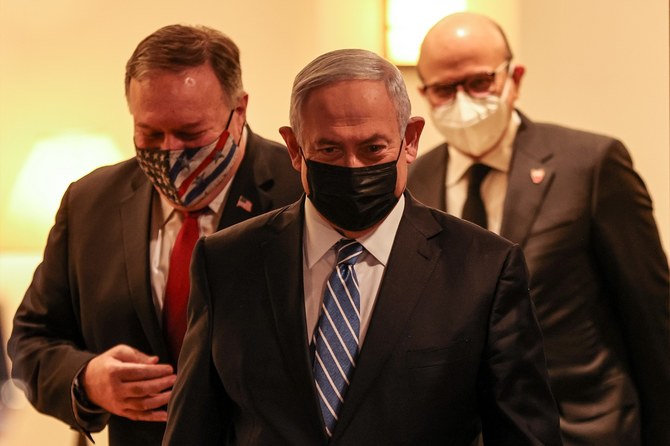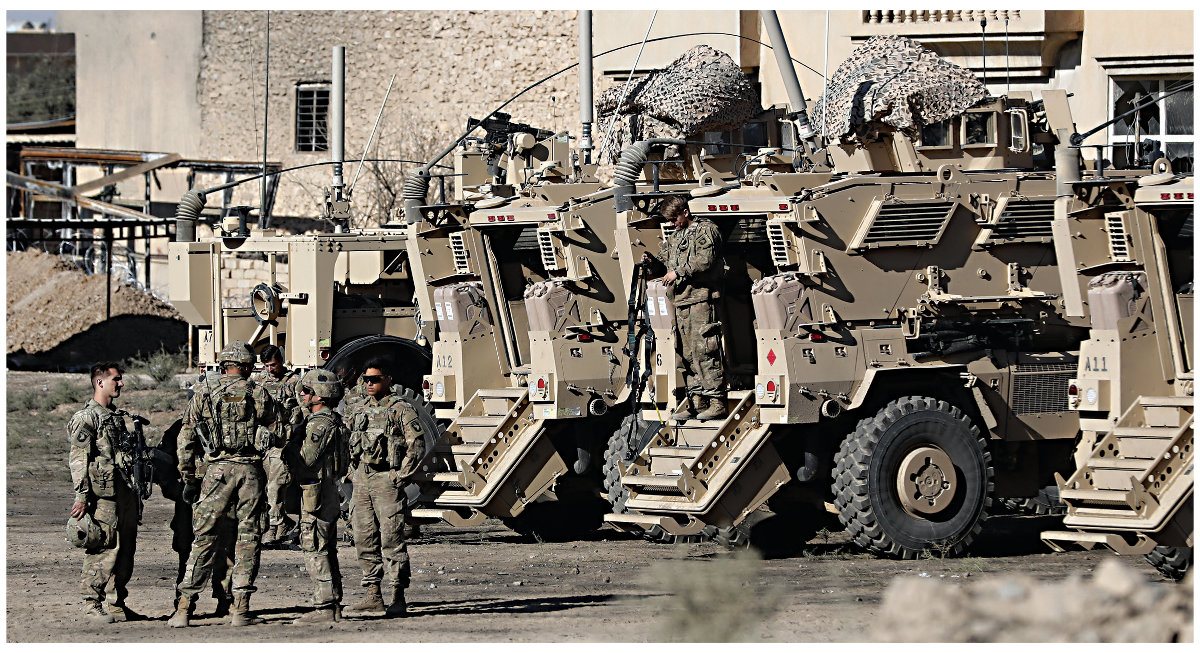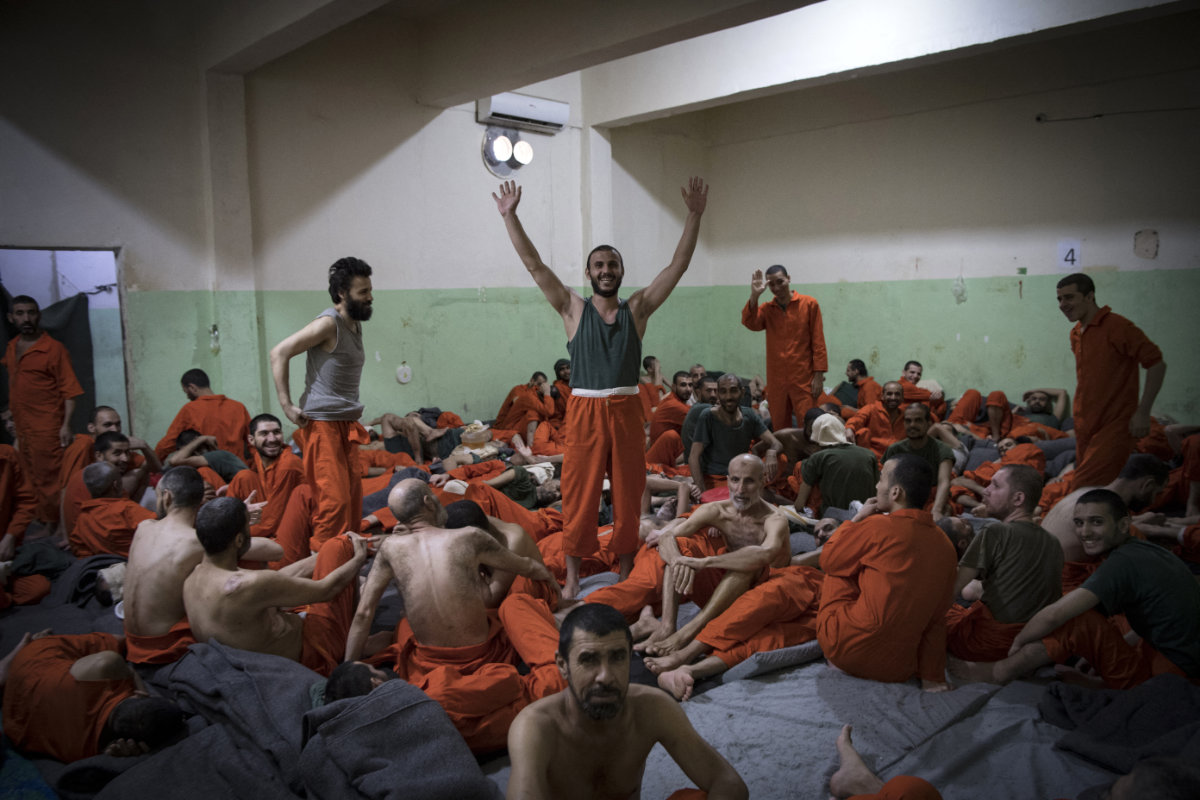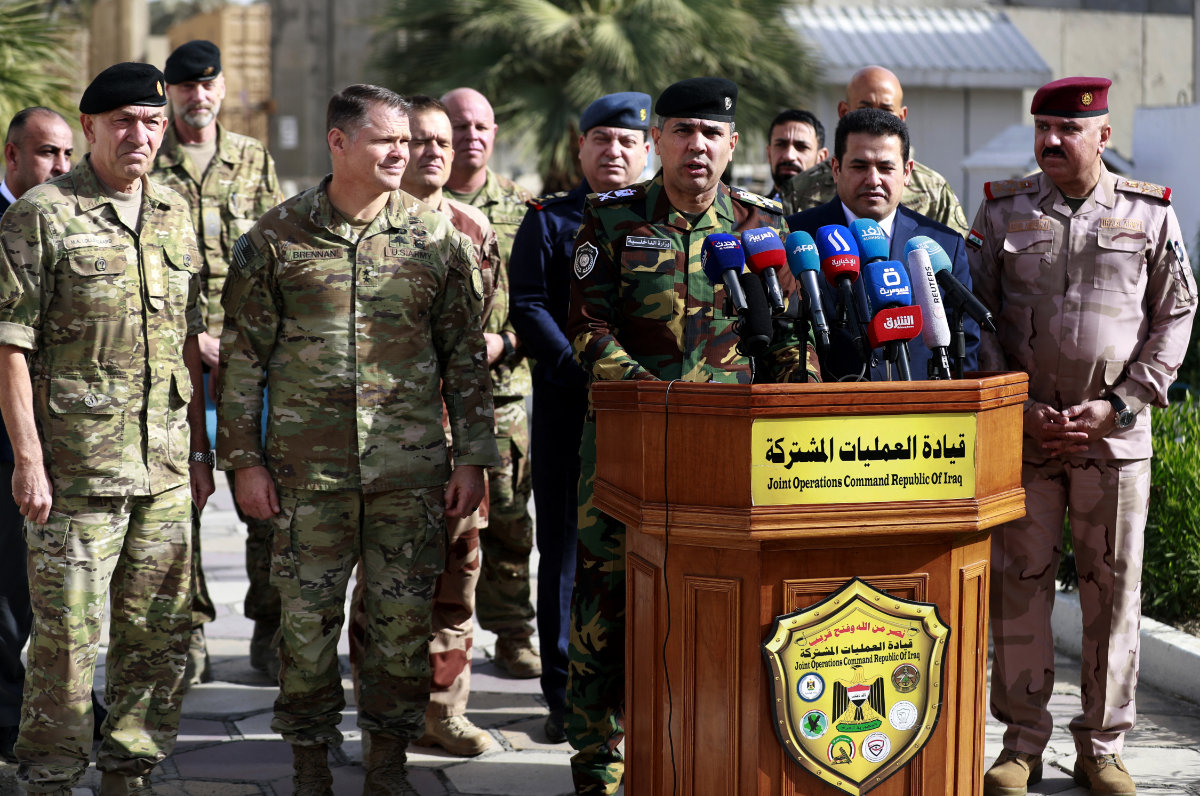JERUSALEM: US Secretary of State Mike Pompeo on Thursday became the first top American diplomat to visit an Israeli settlement in the occupied West Bank as the State Department in a major policy shift announced that products from the settlements can be labeled “Made in Israel.”
The two moves reflected the Trump administration's acceptance of Israeli settlements, which the Palestinians and most of the international community view as a violation of international law and a major obstacle to peace.
Pompeo also announced that the U.S. would brand the international Palestinian-led boycott movement against Israel as “anti-Semitic” and bar any groups that participate in it from receiving government funding. It was not immediately clear which groups would be affected by the move.
Pompeo's announcements were largely symbolic and could be reversed by the incoming administration of President-elect Joe Biden, who has promised a more evenhanded approach to Israel and the Palestinians. Nonetheless, they illustrated the deep ties between the outgoing Trump administration and the hard-line government of Israeli Prime Minister Benjamin Netanyahu.
In a Twitter post, Pompeo confirmed his visit to the Psagot winery, located in a settlement near Jerusalem, which released a blended red named for the secretary last year in gratitude for his stance on the settlements. Reporters were not allowed to accompany him.
“Enjoyed lunch at the scenic Psagot Winery today,” he tweeted. “Unfortunately, Psagot and other businesses have been targeted by pernicious EU labeling efforts that facilitate the boycott of Israeli companies. The U.S. stands with Israel and will not tolerate any form of delegitimization.”
The European Union, like most of the world, opposes Israeli settlements and requires imports from the occupied territory to be labeled as coming from the West Bank.
Neither Netanyahu nor Pompeo said anything about the U.S. election. Pompeo, like Trump, has yet to acknowledge Biden's victory. Netanyahu earlier this week congratulated Biden and referred to him as the president-elect in an official statement.
Pompeo later visited the Golan Heights, a strategic plateau Israel captured from Syria in the 1967 Mideast war and later annexed. In a break from the rest of the international community, the Trump administration recognized the territory as part of Israel last year.
Pompeo was joined by Israeli Foreign Minister Gabi Ashkenazi and Avigdor Kahalani, a decorated retired Israeli general famous for leading Israeli forces against a Syrian tank invasion during the 1973 Mideast war.
“You can’t stand here and stare out at what’s across the border and deny the central thing that President Trump recognized, what the previous presidents have refused to do,” Pompeo said. “This is a part of Israel and a central part of Israel.”
Pompeo had earlier announced the U.S. will regard the Palestinian-led boycott movement as “anti-Semitic” and cut off government support for any organizations taking part in it, a step that could deny funding to Palestinian and international human rights groups.
“We will regard the global, anti-Israel BDS campaign as anti-Semitic,” Pompeo said, referring to the Boycott, Divestment and Sanctions movement.
“We will immediately take steps to identify organizations that engage in hateful BDS conduct and withdraw U.S. government support for such groups," he said, adding that all nations should "recognize the BDS movement for the cancer that it is.”
BDS organizers cast their movement as a non-violent way of protesting Israel's policies toward the Palestinians modeled on the campaign that helped end apartheid in South Africa. The movement has had some limited success over the years, particularly on college campuses and with artists and entertainers, but no impact on the Israeli economy.
Israel views BDS as an assault on its very existence, and has seized on statements by some supporters to accuse it of anti-Semitism, allegations denied by organizers.
In a statement, the BDS movement reiterated its rejection of “all forms of racism, including anti-Jewish racism,” and accused the U.S. and Israel of trying to silence advocacy for Palestinian rights.
“The BDS movement for Palestinian freedom, justice and equality, stands with all those struggling for a more dignified, just and beautiful world," it said. "With our many partners, we shall resist these McCarthyite attempts to intimidate and bully Palestinian, Israeli and international human rights defenders into accepting Israeli apartheid and settler-colonialism as fate.”
It was unclear what organizations would be at risk of losing funding. Israelis have accused international groups like Human Rights Watch and Amnesty International of supporting BDS, allegations they deny.
Human Rights Watch, whose local director was deported from Israel last year for past statements allegedly in support of BDS, does not call for boycotting Israel but urges companies to avoid doing business in West Bank settlements, saying it makes them complicit in human rights abuses. Amnesty does not take a position on the boycott movement.
“The Trump administration is undermining the common fight against the scourge of antisemitism by equating it with peaceful advocacy of boycotts,” said Eric Goldstein, acting Middle East and North Africa director at Human Rights Watch.
Bob Goodfellow, Amnesty International USA's interim executive director, called the US decision “a gift to those who seek to silence, harass, intimidate and oppress those standing up for human rights around the world.”
Israel passed a 2017 law that bars entry to foreigners who have called for economic boycotts of Israel or its settlements. The U.S. House of Representatives passed a resolution opposing the boycott movement last year, and several U.S. states have enacted anti-BDS laws.
Kate Ruane, senior legislative counsel of the American Civil Liberties Union, said that threatening to block funds to groups that criticize Israel is “blatantly unconstitutional.”
The EU's former foreign policy chief, Federica Mogherini, said while in office that she opposed BDS but backed the movement's right to call for boycotts as freedom of speech.
Virtually all Palestinian civil society groups support the boycott movement. Under President Donald Trump, the U.S. has already cut off nearly all forms of aid to the Palestinians. Biden has pledged to restore the aid as part of efforts to revive the peace process.
Pompeo spoke at a press conference with Netanyahu, who said the Israel-US alliance had reached “unprecedented heights” under the Trump administration.
Netanyahu thanked the administration for moving its embassy to contested Jerusalem, abandoning the U.S. position that Israeli settlements are contrary to international law, recognizing Israel's annexation of the Golan Heights and taking a hard line against Iran.
Israel captured east Jerusalem and the West Bank in the 1967 war. The Palestinians claim both territories and say the sprawling network of settlements have all but extinguished their hopes for a viable, independent state.
Nabil Abu Rdeneh, spokesman for Palestinian President Mahmoud Abbas, condemned Pompeo's embrace of the settlements and accused the outgoing U.S. administration of "active participation in the occupation of Palestinian lands."
Turkey, where Pompeo angered officials on Tuesday by meeting with the leader of the world's Orthodox Christians while snubbing the country's leaders, said the visit to the settlement was a “grave step” that violates U.N. resolutions and “legitimizes Israel’s illegal actions.”
Trump's Mideast plan, which overwhelmingly favors Israel and was rejected by the Palestinians, would allow Israel to annex up to a third of the West Bank, including all of its settlements, which are home to nearly 500,000 Israelis.







































